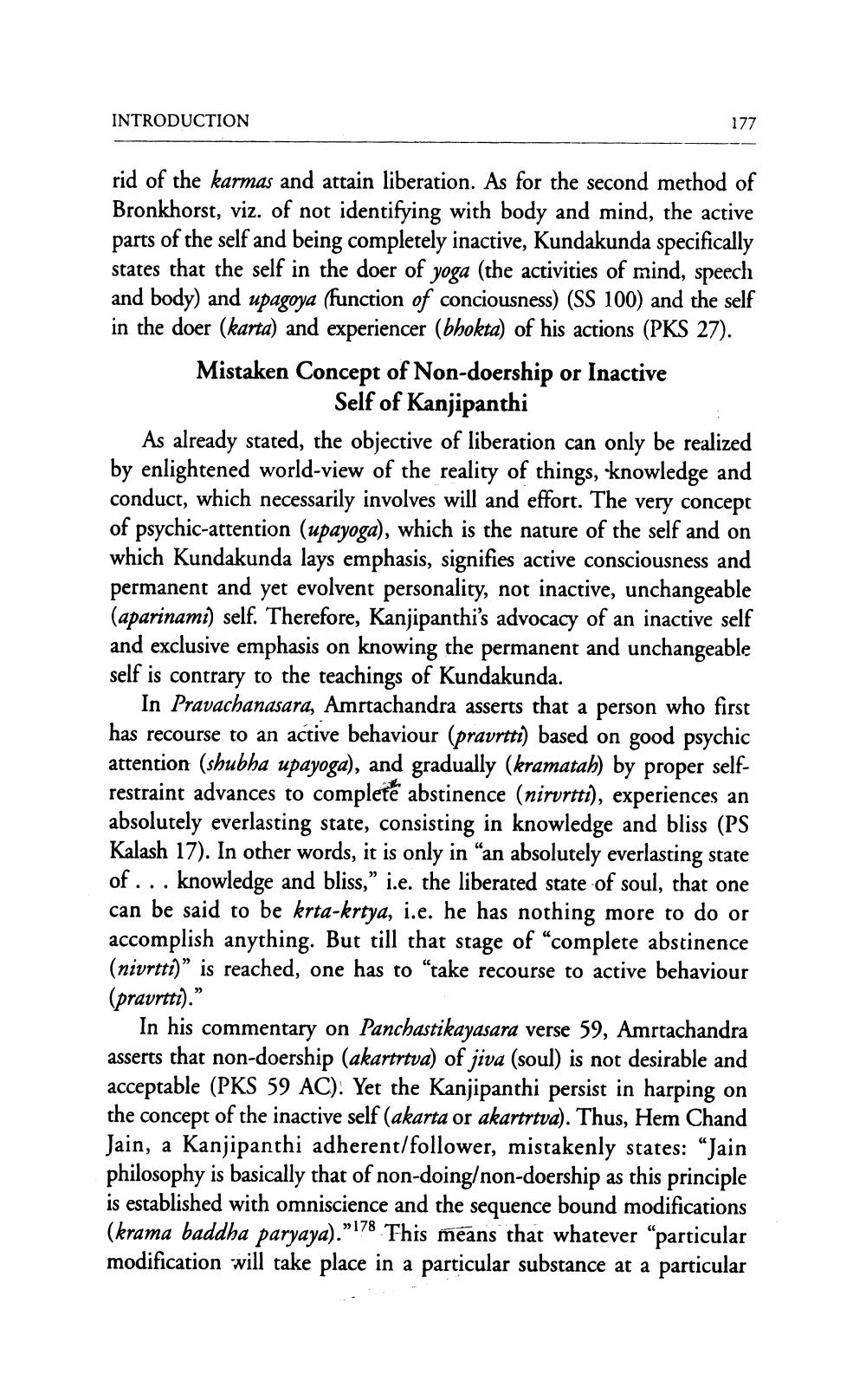________________
INTRODUCTION
177
rid of the karmas and attain liberation. As for the second method of Bronkhorst, viz. of not identifying with body and mind, the active parts of the self and being completely inactive, Kundakunda specifically states that the self in the doer of yoga (the activities of mind, speech and body) and upagoya (function of conciousness) (SS 100) and the self in the doer (karta) and experiencer (bhokta) of his actions (PKS 27). Mistaken Concept of Non-doership or Inactive
Self of Kanjipanthi As already stated, the objective of liberation can only be realized by enlightened world-view of the reality of things, knowledge and conduct, which necessarily involves will and effort. The very concept of psychic-attention (upayoga), which is the nature of the self and on which Kundakunda lays emphasis, signifies active consciousness and permanent and yet evolvent personality, not inactive, unchangeable (aparinami) self. Therefore, Kanjipanthi's advocacy of an inactive self and exclusive emphasis on knowing the permanent and unchangeable self is contrary to the teachings of Kundakunda.
In Pravachanasara, Amrtachandra asserts that a person who first has recourse to an active behaviour (pravrtti) based on good psychic attention (shubha upayoga), and gradually (kramatah) by proper selfrestraint advances to complete abstinence (nirvrtti), experiences an absolutely everlasting state, consisting in knowledge and bliss (PS Kalash 17). In other words, it is only in “an absolutely everlasting state of ... knowledge and bliss,” i.e. the liberated state of soul, that one can be said to be krta-krtya, i.e. he has nothing more to do or accomplish anything. But till that stage of “complete abstinence (nivrtti)” is reached, one has to “take recourse to active behaviour (pravrtti).”
In his commentary on Panchastikayasara verse 59, Amrtachandra asserts that non-doership (akartrtva) of jiva (soul) is not desirable and acceptable (PKS 59 AC). Yet the Kanjipanthi persist in harping on the concept of the inactive self (akarta or akartrtva). Thus, Hem Chand Jain, a Kanjipanthi adherent/follower, mistakenly states: “Jain philosophy is basically that of non-doing/non-doership as this principle is established with omniscience and the sequence bound modifications (krama baddha paryaya).”!78. This means that whatever “particular modification will take place in a particular substance at a particular




